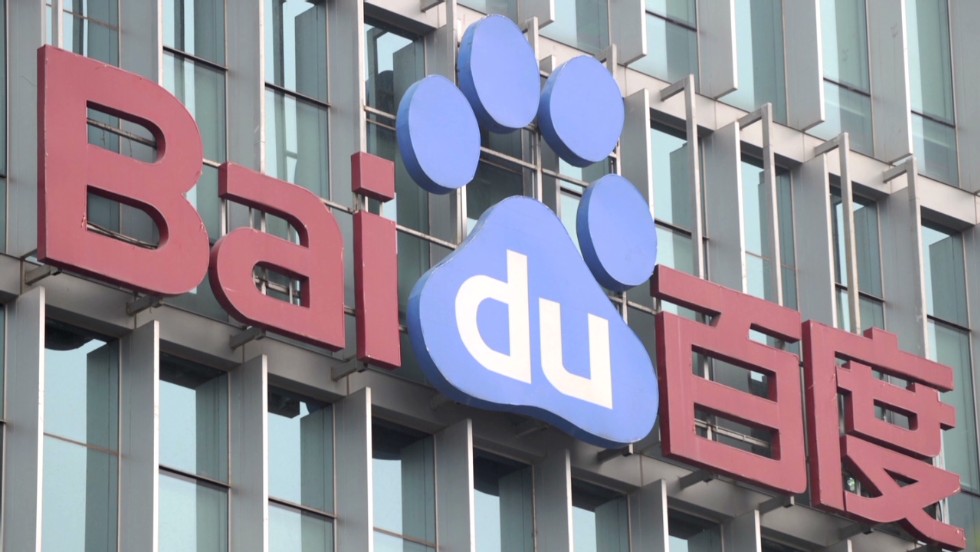Hong Kong (CNN Business)Baidu has had an abysmal year. But investors aren't ready to write off the company just yet.
The Chinese search giant reported that net profit dropped a whopping 62% in the most recent quarter compared to a year earlier. Revenue, meanwhile, grew about 1%. But those results, posted late Monday, were better than analysts expected ŌĆö and that was enough to send the stock soaring more than 9% in pre-market trading.
The $351 million the company netted also marked a return to profit after it made its first loss since going public 15 years ago.
That's welcome news for Baidu (BIDU). Its shares have shed about 60% of their value ŌĆö roughly $60 billion in market capitalization ŌĆö since the stock hit an all-time high in May 2018.
The company's main business, online marketing, has been hurt by increased regulation of online content in China, as well as the country's broader economic slowdown. Digital marketing accounts for about 73% of Baidu's revenue.
Baidu Chief Financial Officer Herman Yu acknowledged during an earnings presentation that the company's digital ad business had a challenging second quarter. Online advertising revenue fell 16% from the prior year, while online marketing revenue dropped 9%.
For months, there hasn't been a "catalyst" for investors to buy Baidu shares, said Connie Gu, associate director of internet research at BOCOM International.
Video and mini apps
But some analysts are now suggesting that the company's stock might be undervalued.
Baidu has been trying to broaden its sources of revenue, and its latest earnings report indicates that some of those efforts are showing promise. Its results were boosted by iQiyi (IQ), a video streaming service in which Baidu still owns a significant stake. Revenue for the "Netflix of China" grew by 15% compared to a year earlier, and the service crossed 100 million subscribers in June.
The company has also taken steps to beef up its mobile offerings.
Last year, Baidu began inviting developers to create "mini" versions of apps that could run within the company's main mobile app. That has allowed people to watch TV shows, and buy and sell goods on Baidu's platform.
As of June, the app program had 270 million monthly active users. The company says the average user spends significantly more time on the app now compared to the same time last year.
It's still early days. But some of the company's initiatives, including the growth in active mobile app users, has "demonstrated solid execution in driving user growth," analysts at Jefferies wrote in a report on Tuesday.
That could help Baidu find more opportunities to monetize its business, the analysts added. They slightly raised their price target on the company to $134.50 a share.
Analysts at HSBC pointed out that fellow Chinese tech giant Tencent (TCEHY) is still the "clear leader" when it comes to social networking and digital payments. After all, it owns the incredibly popular Chinese social media app WeChat.
But Baidu's mobile efforts have become "sizable," the HSBC analysts said, adding that they "remain positive given Baidu's cutting-edge AI technologies" and see the app program as "under-appreciated by the market."
Baidu has also been gaining momentum in hardware. The company rolled out its AI-powered "Xiaodu" smart devices last year, which have already become an important and fast-growing piece of the puzzle, said Gu, the BOCOM International researcher.
Analysts also note that the company still has a broad array of cutting-edge technologies, including its cloud business and Apollo autonomous driving platform, that could pay off big down the line.




















